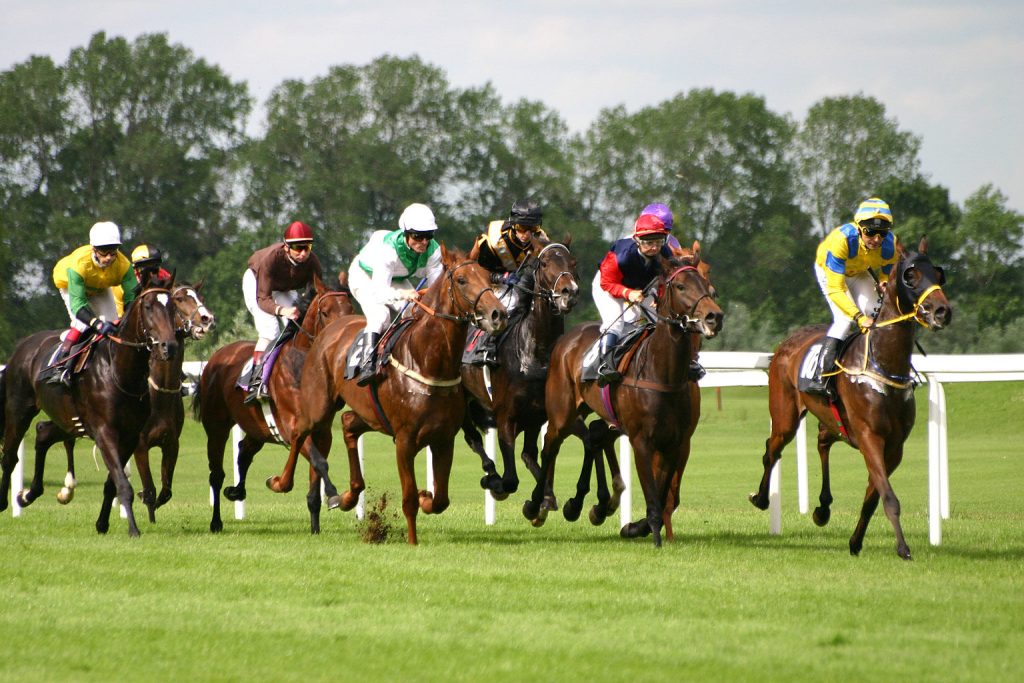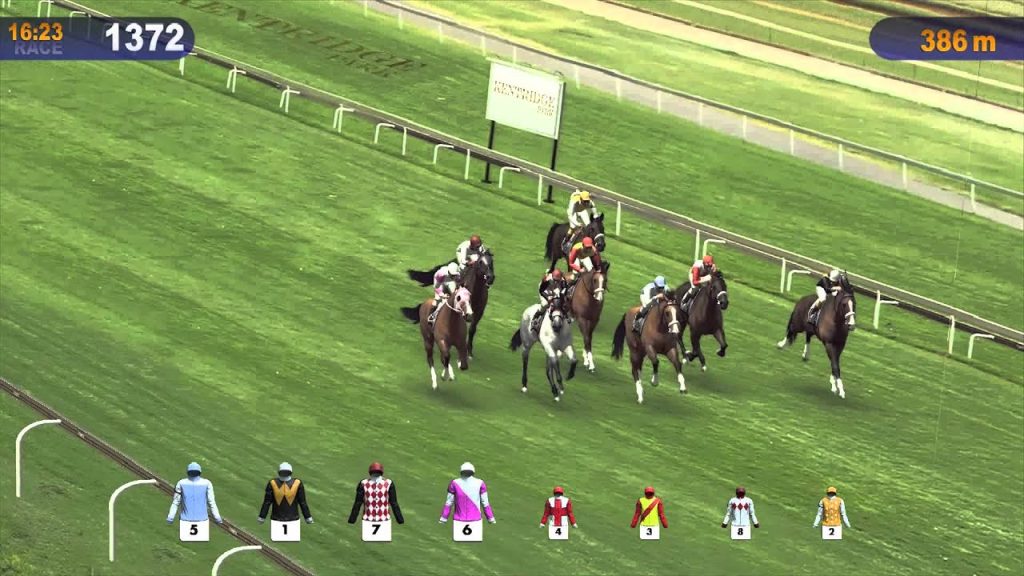Today, bookmakers are associated mainly with football and a couple of other popular sports, but the development of bookmakers began with horse racing. At the beginning of the last century, British gentlemen came to the racetracks and watched the jockeys race their horses to the finish line. Of course, with the advent of ball games, horse racing faded into the background, but there are still many fans of this entertainment. To make a bet, it is not necessary to go to the hippodrome. Top bookmakers offer to bet remotely.
Betting on horse races seems to be an aristocratic kind of betting. After all, remembering foreign feature films, all influential and successful people played in two places: the casino and the racetrack. This type of betting is popular in Western Europe, particularly in England. But also domestic bookmakers began to add horse racing to their rosters. Let’s try to figure out what the advantage of this sport in betting, what you should know when making deals, and how you can earn.
Types of bets on horse racing
Betting on horse racing has its own characteristics. The capper will not see traditional P1 or P2, totals or handicaps. In this area, there are completely different designations. The main types of bets include:
- Win. The winner of the race is determined. The bettor must predict which horse will cross the finish line first. However, you can also bet on the outsider. A capper chooses a horse that is not expected to win and bets that it will not win the race. Even if the horse comes second, the bet has played, but the odds for such an outcome are quite low.
- Place. A light variation of the first bet. The capper, as before, looks for the favorite and bets on him, but it is enough for the horse to be among the prize places, which depends on the specific race. If there are 8 horses on the course, then your favorite must take the first or second place, and if there are more than 14 horses that started, then the prize pool of finishers consists of four places.
- Double. The capper guesses two horses that he thinks will win two different races. Something similar to the express.
- Double double. The bet is called a double double and assumes that the bettor will guess four winners of the races.
- Exacta. The capper determines not only the winner of the race but also the vice-champion.
There is nothing complicated in horse racing betting, if you understand a little, familiarize yourself with the terms.

Strategies for betting on horse racing
Professional cappers are guided by certain strategies of the game, even when it comes to betting on horse racing.
- Strategy №1. Betting on recent winners
The capper looks at the results of previous races, highlighting the clear winners. The strategy involves the analysis of statistics and news. If a recent winner confidently runs the entire distance of the season, has had enough time to rest, then the bettor bets on the favorite. They usually bet on Win, but the capper can minimize risks and bet on Place, with lower odds. - Strategy №2. Strategy of partnership between horses and jockeys
The final result often depends on the relationship between the jockey and the horse. The strategy implies the need to find a horse that took second or third place in the previous race. If the jockey has not changed, he will understand the horse better, and therefore the chances of winning increase. In general, the jockey factor is often underestimated. If the favorite horse is ridden by another jockey, the probability of repeating a good result is reduced, because the animal and the jockey must establish an understanding. - Strategy #3. Betting on the underdog
The capper is guided by statistics when he chooses a horse with good results, but in the last races he was among the outsiders. When a horse loses, bookmakers shift their attention to other participants. Bookmakers do not dive into statistics, studying the potential of horses, the skill of jockeys, etc., so miscalculations are possible. The strategy is popular among professional bettors.
How to bet on horse racing?
Online betting on horse racing is associated with some features that the capper should take into account in order to be in the black.
What should you pay attention to?
Before making your forecast, it is important for the capper to study the following statistics that affect the final result:
- Age of the horse. At a short distance, young horses look like obvious favorites. However, if the capper puts on a long distance, then experience decides a lot.
- Rest between races. It is important for the capper to know how far the race is planned and how much time the horse has had to rest before. For sprints, a good horse is considered to be well rested if the pause was a month. For long distances, a long rest is a negative factor.
- Jockey’s weight. The average weight of a jockey is within 60 kilograms. Exceptions are made for beginners.
- Weather conditions. Jumps take place on open racetracks, so changes in weather conditions can make adjustments to the schedule of forces – outsiders can easily be among the winners. Captains usually refrain from betting if serious weather changes are expected.

Features of betting on horse racing
The capper should understand the features of horse racing betting. Different types of odds are offered at different times and the bettor should take this factor into account:
- AR coefficient. Bookmakers post quotes long before the start of the tournament. It is used by cappers who conduct deep preliminary analytics that determine the favorite and outsider of the tournament.
- ER coefficient. Quotes are posted at the moment when the list of participants in the race is approved. Usually, the coefficient appears a few days before the race.
- ER-board coefficient. Quotes are valid from the moment the horses enter the inner yard until the start of the race.
- SP coefficient. Offered immediately before the start.
These odds can vary for the same horse, so bettors choose the quotes that match their strategies.
Where to bet on horse racing?
Top bookmakers offer wide lines on horse racing. When choosing a bookmaker, the following factors matter:
- Age of the bookmaker. The longer the bookmaker offers its services to bettors, the more reliable it is.
- Quotes. Bookmakers calculate coefficients according to their own algorithms. Therefore, cappers choose bookmakers where the coefficients are higher and the margin is lower.
- Schedule of events. Popular bookmakers offer to bet on top competitions, and small tournaments are usually offered by highly specialized bookmakers.
- Line. Each bookmaker offers its own outcome line – it can include exotic and combined variations.
- Bonuses and special offers. Most of the top bookmakers offer promotions and bonuses that make the betting game more attractive.
Useful tips
Some useful tips that will come in handy for horse racing bettors include the following:
- Traditional strategies do not apply to horse racing. For example, the popular “catch-up” or Martingale will help to drain the deposit faster.
- You should not bet on every race. Take time to study the statistics. It is important to approach betting with a cool head, make the necessary preliminary calculations, and rely on the chosen strategy.
- It is a bad habit to sympathize with horses or jockeys. Betting should not be guided by emotions.

Conclusion
On betting on horse races is real to earn, and domestic bookmakers offer a satisfactory spread. For winning bets, you can use a strategy with safety nets, when several participants in the race are taken into the coupon at once. For those who are new to the sport, it is recommended to bet at the beginning of the day, when horses of approximately equal strength are competing. You can also find interesting bonuses in BC, which are designed specifically for horse racing. To make betting more interesting (or to get to know the competitors’ abilities in person), you can follow the events online, thanks to the broadcasts in the offices now full order.





